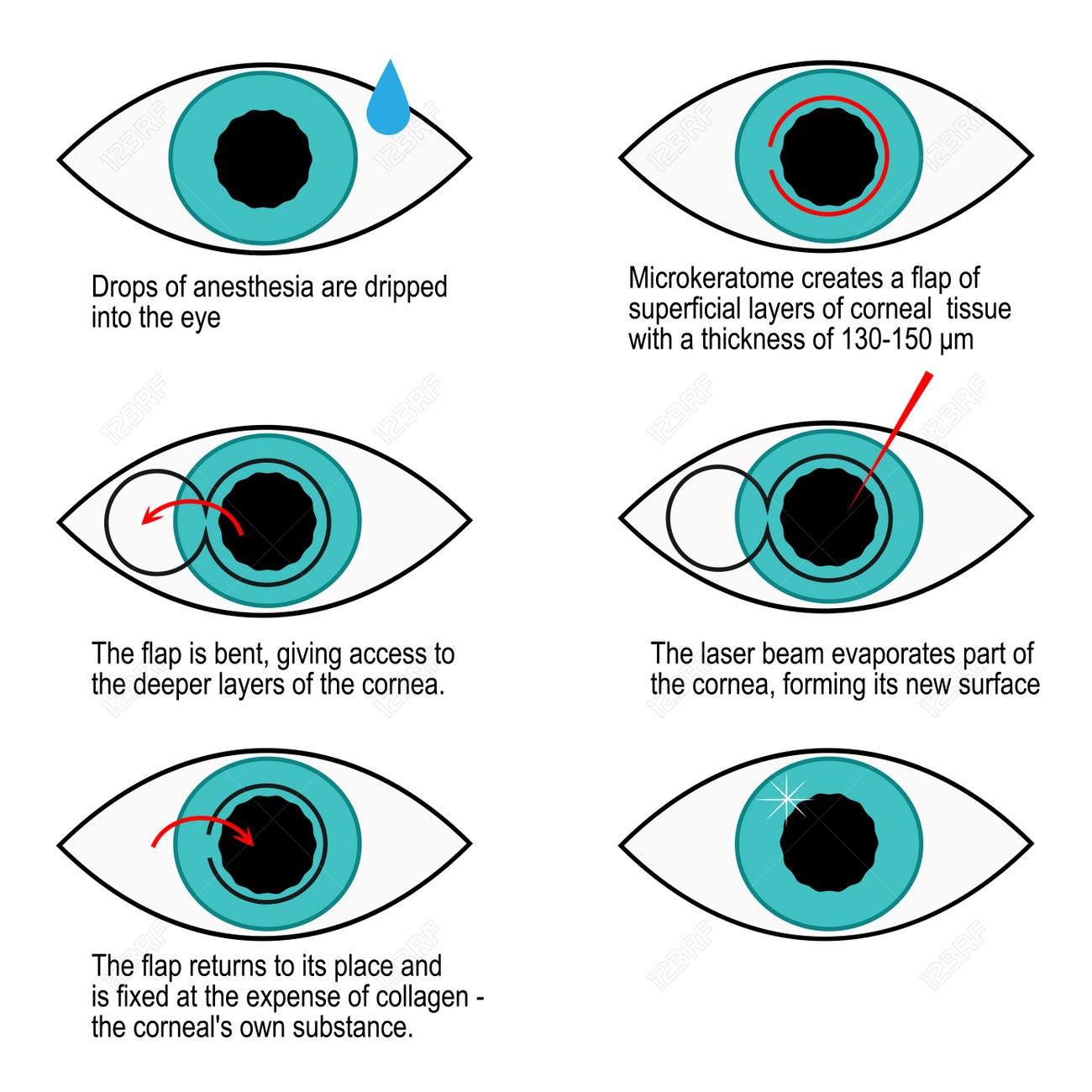Frequently Asked Questions About Lasik Eye Surgical Procedure

Authored by-Skou Holme
Before LASIK, your eye specialist will certainly check your vision to ensure it is secure. She or he will certainly also check to see if you have any other eye issues that can influence your results.
After the ophthalmologist has applied numbing eye declines, she or he will produce a paper-thin flap in your cornea tissue making use of a gadget called a microkeratome or laser. What Does LASIK Surgery Do is pain-free.
What Is LASIK?
LASIK is a sort of refractive surgery. It fixes vision troubles brought on by refractive mistakes, which occur when the cornea or lens do not effectively flex light rays.
Most individuals who have LASIK attain great distance vision without glasses or contacts. Nevertheless, they might require analysis glasses to see close. The outcomes of LASIK are irreversible, although aesthetic side effects are temporary.
Can I Have LASIK if I Have Astigmatism?
Fuzzy vision is commonly caused by astigmatism. LASIK can assist with this trouble by making your cornea more balanced. Recommended Web site will certainly make use of a tool called a microkeratome or laser to cut a thin flap in your cornea, after that fold it back. They will after that make use of a laser to improve the cornea so it can bend light better.
The only point that LASIK can not do is right presbyopia (age-related farsightedness). This can only be finished with cataract surgical procedure.
Can I Have LASIK if I Have Dry Eye?
An essential part of the LASIK evaluation is evaluating how well your eyes produce tears. Some people with completely dry eye are not able to obtain LASIK because it can intensify the problem.
Dry eye is a typical negative effects of LASIK since the procedure cuts corneal nerves. Nevertheless, it normally enhances as the eye heals. You can use fabricated splits and punctal plugs to handle your signs.
Can I Have LASIK if I Have a Cataract?
In most cases, yes. LASIK can boost your vision after cataract surgical treatment.
When you have a cataract, your lens is gloomy and also your close-up vision is blurry. LASIK can aid with this, as well as your distance vision.
Throughout LASIK, your cosmetic surgeon will certainly make use of a laser or a blade to produce a slim flap on your cornea. After that the doctor will certainly fold up the flap back and also use a laser to improve your cornea.
Can I Have LASIK if I Have a Retinal Detachment?
Retinal detachment normally arises from a retinal tear. The doctor will certainly repair the tear with an in-office treatment called pneumatic retinopexy. After the eye is numbed, the medical professional inserts an expanding gas bubble right into the eye to push the separated retina versus its assistance cells.
LASIK doesn't correct presbyopia, which establishes as you age and also triggers fuzzy close-up vision. However, it can be combined with mono-vision to minimize or remove the need for checking out glasses.
Can I Have LASIK if I Have a Hyperopia (Farsightedness) or Nearsightedness (Nearsightedness)?
A lot of medical insurance business don't cover LASIK due to the fact that it isn't taken into consideration clinically essential. Nonetheless, they might reimburse individuals for lens implants if a specialist is part of their network.
Prior to https://kathy082bob.werite.net/post/2023/05/27/Lasik-Eye-Surgery-Vs.-Get-In-Touch-With-Lenses:-Which-Is-Better-For-You undergo LASIK, your eye doctor will execute an extensive eye test. This will certainly include inspecting your general eye wellness, pupil size and also refractive mistake. She or he will also gauge the density of your corneas.
Can I Have LASIK if I Have Presbyopia (Aging Eyes)?
LASIK does not resolve presbyopia (loss of close to vision related to age). Rather, it corrects refractive mistakes by reshaping the cornea.
After numbing drops and also covering the eye with a shield or patch, the doctor creates the flap. Then the laser improves the cornea. You may hear a clicking sound as well as scent an uncommon scent. This is normal and does not trigger damage.
Can I Have LASIK if I Have Keratoconus (Rounded Cornea)?
In LASIK, your specialist will make use of a femtosecond laser to reduce a thin flap in the cornea. They will certainly after that fold it back as well as make use of a various laser to improve your cornea.
Your vision is based upon just how light enters your eye, bends with the lens as well as focuses on the retina. Refractive errors keep light from focusing effectively as well as trigger blurry vision.
Can I Have LASIK if I Have Blepharitis (Inflammation of the Eyelids)?
Many patients choose LASIK since they want flexibility from glasses or contact lenses. It is necessary to discuss your goals with your ophthalmologist prior to having the procedure.
LASIK is not uncomfortable. Eye decreases are placed to numb your eyes before the surgical treatment. Many people explain feeling a slight stress however no discomfort. Recuperation from LASIK is relatively fast. Your vision will be a little fuzzy as well as light delicate right after surgery however need to enhance rapidly.
Can I Have LASIK if I Have a Corneal Density Problem?
LASIK corrects vision by improving the corneal tissue. To do this, the cornea should be thick sufficient for the doctor to create a flap.
If your corneas are too thin, you might be a candidate for laser vision modification procedures that do not require developing a flap, such as PRK or Epi-LASIK. These procedures have comparable outcomes to LASIK yet work in a different way.

